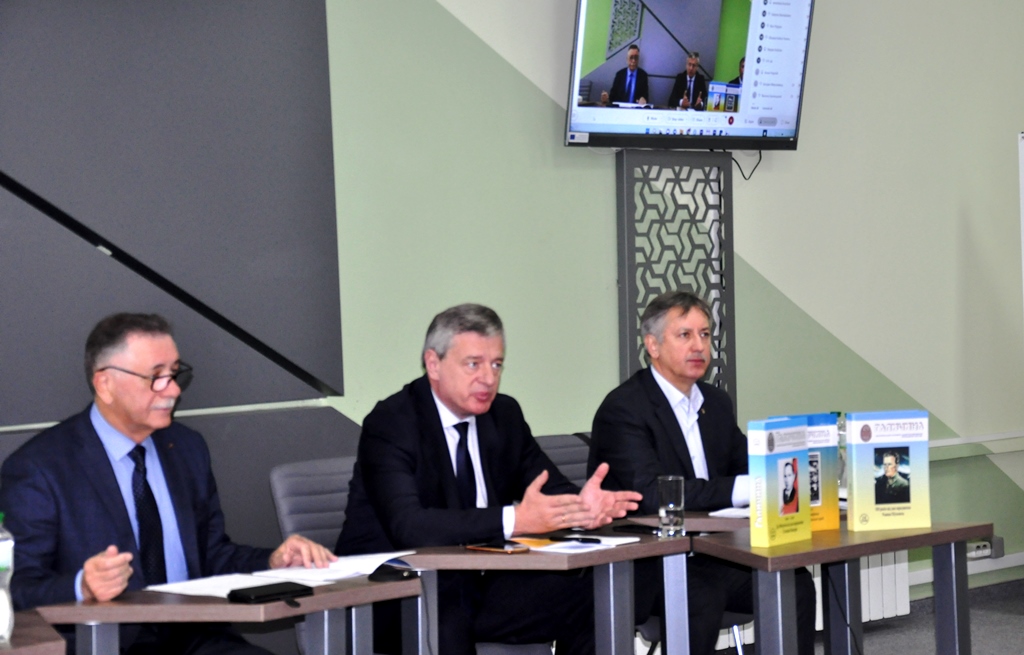On October 12, the All-Ukrainian scientific conference “Ukrainian Insurgent Army in the fight against the Nazi and Bolshevik totalitarian regimes” was held at the Center for Innovative Educational Technologies “PNU EcoSystem” of the Vasyl Stefanyk Precarpathian National University, which was co-organized by the Educational and Scientific Institute of History, Ethnology and Archeology of Carpathian. The event was timed to the 80th anniversary of the creation of the UPA. The organizers of the conference were also the Ivano-Frankivsk Regional Council, the Ivano-Frankivsk Regional Military Administration, the Institute of History of Ukraine of the National Academy of Sciences of Ukraine, the Faculty of History, Political Science and International Relations, the Oleksandr Karpenko Educational and Scientific Center for the Study of the Ukrainian National Liberation Movement of the Vasyl Stefanyk Precarpathian National University, National Union of Local Historians of Ukraine, Stepan Bandera Ivano-Frankivsk Regional Museum of Liberation Struggle named.
Scientists, archival and museum workers, teachers, lecturers and students of a number of domestic institutions of higher education took part in the work of the scientific conference, which was held in a mixed format. Among about a hundred participants were employees of the Institute, Roman Kobylnyk and Bohdan Paska. The scientific forum was moderated by the Director of the Institute of History, Ethnology and Archeology of the Carpathians, Dean of the Faculty of History, Political Science and International Relations of the University, Professor Mykola Kuhutiak.
The organizers and participants of the discussion panels emphasized the importance of holding a scientific event designed to summarize the historiographical and archeographic achievements of domestic and foreign scientists in the study of key aspects of the history of anti-Nazi and anti-Soviet resistance in Ukraine in the 1940s-1950s, to creatively think of new conceptual approaches to study of this problem related to the use of social, cultural, oral history methods, conducting microhistorical research, studying the local context, implementing anthropological and prosopographical approaches, the basics of historical biography and personalism, the history of everyday life.

